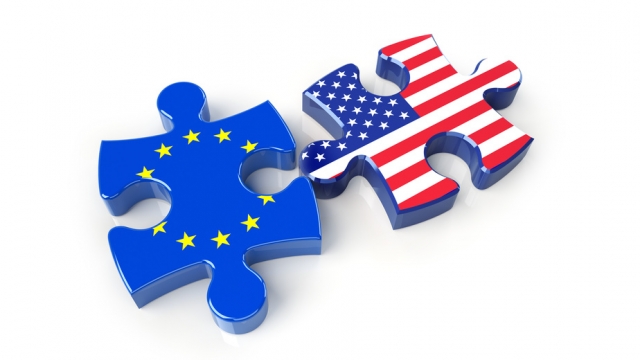US and EU Lead Int'l Assistance to Georgia during the COVID-19 Pandemic
As Georgia begins to slowly lift restrictions, it remains one of the few countries in Europe to have yet experienced an outbreak of COVID-19 thanks to its early control measures and quick steps taken to contain cases.
Yet maintaining a low incidence rate is only one front among many in a large and long battle. Health system capacities must be updated to handle future potential outbreaks and longer term safety measures must be taken to avoid economic collapse and allow for quick recovery.
According to an April 16 Rustavi 2 interview with Head of the National Centre for Disease Control Amiran Gamkrelidze, Georgia's healthcare capacity would be quickly overwhelmed were an outbreak to occur. World experts are now warning that future waves of the virus may recur seasonally until a vaccine is created.
The good news is Georgia now has time and support to plan, yet building capacity is no small task. At a time when countries compete for medical resources, less developed countries will rely critically on international assistance to bolster healthcare.
Earlier this month, the US announced an increase in COVID-19 aid already pledged by $600,000 to $1.7 million for emergency health assistance. This funding will expand laboratory capacities, improve tracking and surveillance of cases, and support the response capacity or technical experts, and is in addition to the $64 million allocated by the US to development in Georgia announced Friday.
Several countries have given what they can to meet Georgia’s immediate equipment needs. South Korea, China, and the US have donated rapid coronavirus tests. Germany has provided 100,000 face masks and 2,000 liters of hand sanitizer. Poland has given 500 liters of disinfectant, 22 units of spraying equipment, and three heating devises for field tents. Lithuania’s funding of protective equipment includes €20,000-worth earmarked for Georgia.
The economic fallout from the lockdown in Georgia will present serious economic challenges for the next few years, as the whole planet looks to strike the right balance between health and economic risks. The weakening of economic stimulants such as trade, tourism, and remittances, are expected to effect a $1.6 billion loss in 2020-2011 in Georgia, with an expected 4% decline in GDP in 2020, according to the IMF mission chief Mercedes Vera Martin.
On April 22, EU affirmed its commitment to a 3 billion Euro financing package for 10 neighboring countries, with €150 million COVID-19 support package for Georgia. These funds will take the form of low-interest loans available for the next 12 months to meet urgent financial needs and improve economic stability. Likewise, the IMF is recommending a 130 percent increase in financing to $375 million, to help stabilize the health sector and larger economy. These funds will help absorb the economic shock by helping guarantee loans, stabilizing inflation, and creating emergency liquidity support for the banking sector.
Yet also critical are the on-the-ground efforts to help prepare ordinary people in their homes and communities, those often neglected in birdseye view of international response. These include at-risk communities already facing economic hardship and lack of access to services whose preexisting challenges are greatly exacerbated during times of crisis. High risk groups such as the elderly must receive additional help and protection during isolation. Vital health information must be translated and disseminated in minority communities.
To this end USAID has partnered with the East West Management Institute (EWMI) to quickly mobilize local groups to act against COVID-19. The program, entitled Act Now, processes applications within 3 to 7 days and provides grants between $500 and $5000 enabling a quick, on the ground, real time response to needs as they arise. These fund efforts by citizen groups and civil society organizations to minimize the spread of the virus, provide support to high-risk and deeply impacted communities, advance and scale up coordination of efforts and responses among sectors.
These grants, known as Rapid Response Grants (RRG), have already funded several CSO initiatives, such as to create databases of people in need, provide food and medicine to isolated elderly, establish hotline, and fund outreach to directly address the contexts and concerns of minority comminutes, such as Roma people living Adjara, and at-risk communities, such as those with preexisting conditions.
By Ryan Michael Sherman
Ryan Michael Sherman is a writer and international development specialist living in Tbilisi. He graduated from Cornell University in 2018 with a Masters in Global Development and has worked in Georgia, Ukraine, Myanmar, and Arctic Alaska. He served in the US Peace Corps from 2012 to 2014 and currently works as a Project Officer at Action Against Hunger’s South Caucasus mission. He is originally from Ogden, Utah.
Image source: Global Compliance News












